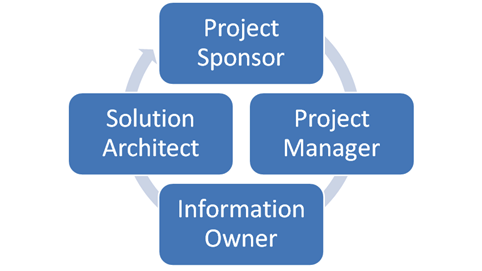Importance of Building a SharePoint Team
Guest Author: Peter Baddeley
Last Weekend I went to an Airshow at the Imperial War Musuem at Duxford. The show rounded off with a display from the Red Arrows (Below) and this example of a near perfect team got me thinking about building a successful SharePoint Team.

A successful team is perhaps won of the most critical aspects to a successful SharePoint project, because without the right people you can’t make it happen. The first thing to say is that building a successful team is not about hiring as many developers as possible and hope they get it all to work. In fact the place to start is not with the people who will implement the project but those who will envisage and plan the project.
Senior Project Team
There are four main roles to consider within a SharePoint Project, and whilst a person can be multiple roles, it is generally advisable that there are unique people for each role.

- Project Sponsor – This is the person at Executive Level who is championing the project. They are the person who gets the budget and is the ultimate escalation point.
- Project Manager – Person who is responsible for delivery of the project on time and within budget. It is generally advisable that this be someone who has managed similar project before so often a external Project Manager is preferable.
- Information Owner – Sometimes this person is called Knowledge Manager or Information Architect the title is not that important but the role is critical. This person will have overall responsibility for the completed system and will be responsible for expressing the details of the requirements to the Solution Architect. It is always advisable that this person be internal to the organisation implementing SharePoint as this is an ongoing role.
- Solution Architect – This person is responsible for translating the requirements of the Information Owner into a deliverable project based on their knowledge of SharePoint. It is their responsibility to document all of the requirements and work with the Project Manager to successfully deliver the project. As this role is very reliant on knowledge of SharePoint, the role is typically fulfilled by an external party.
The rest of the Team
Obviously there is a bit more to SharePoint team then just what is detailed above, you need the people who will actually implement the solution.

You need to think about who will fulfil each of the roles above
| .NET Developers | Is there a requirement for custom functionality to be developed |
| Web Designers | Does your solution need custom branding |
| Form Designers | Do you have any InfoPath Requirements |
| SharePoint Consultants | To install, configure and customise the solution |
| Trainers | To train key users and end users |
| Support | How will you solution be supported once it has gone live |
Want to find out more
If you need any more advice drop me a message and I will be happy to help if I can. Alternatively if you are based in Ireland why not come to a SharePoint Briefing in November at Microsoft Dublin when I speak about this subject.
 Guest Author: Peter Baddeley
Guest Author: Peter Baddeley
Peter Baddeley is a Solutions Architect responsible for the design and implementation of SharePoint/Information Worker solutions at ISC Software Solutions. He lives in Cambridgeshire United Kingdom, and has been implementing SharePoint solutions for the past 5 years. Peter speaks regularly at a number of events in the UK and Ireland, sharing his knowledge of implementing and also supporting solutions based on SharePoint technologies.












 on
on
What is interesting is that internal to companies, specifically on smaller SharePoint engagements, the roles as defined can be blurred by individuals wearing multiple hats. At that point the roles should be recapped as just that and not identified by the individual fulfilling the role. In that way the critical integrity of the roles is not lost within the project.